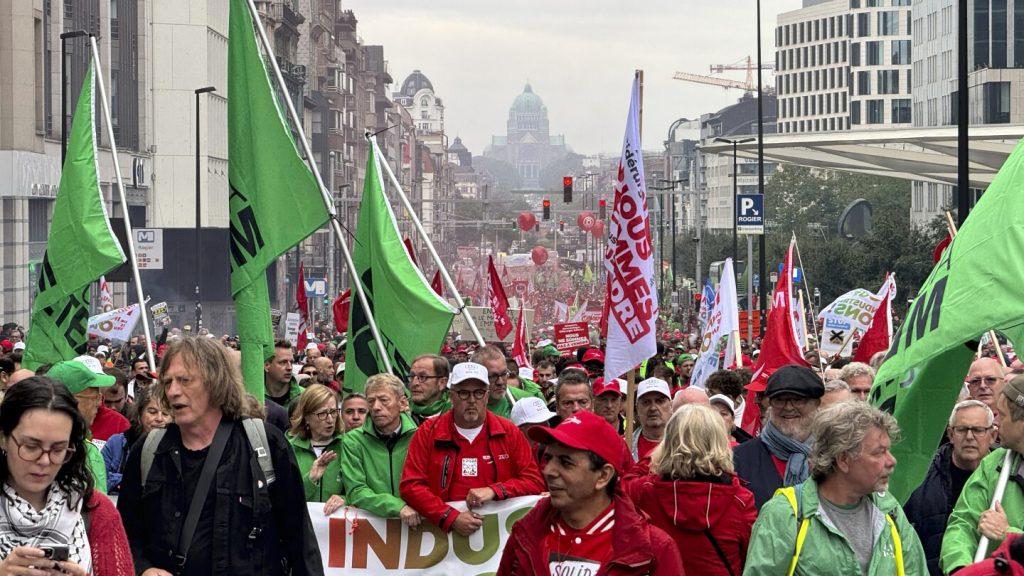The protest in Brussels on Monday saw thousands of workers demonstrating against the threat of massive layoffs at the Audi car factory in southern Brussels. The decision to phase out production at the plant, which employs 3,000 workers specializing in electronic vehicle production, has sparked fears among employees about the future of their jobs. Many feel that the situation at Audi could set a dangerous precedent for other industries in Belgium, prompting calls for more government support to protect key sectors in the face of global competition, particularly from China and the United States. Workers like Salvatore Tabone, who has been with Audi for 27 years, expressed frustration at the potential job losses despite their efforts to contribute to the company.
The situation at Audi is not an isolated case in Belgium, according to union representative Lieve De Preter, who noted a wider trend affecting major industries across the country. A recent report commissioned by the EU highlighted the need for a significant financial boost of up to 800 billion euros to facilitate a clean energy transition and enhance competitiveness with global trading partners. The EU has been struggling with weaker growth compared to the United States, widening the trans-Atlantic industrial gap. The European Trade Union Confederation emphasized that Europe has lost 850,000 jobs in the industry sector between 2019 and 2023, pointing to a need for more support from EU leaders to protect jobs and industries. ETUC General Secretary Esther Lynch highlighted the urgent need for action to prevent further job losses in key sectors.
The Audi decision to phase out production in Brussels comes at a critical time for the EU, as the new executive office under Commission President Ursula von der Leyen is gearing up to address industrial policy during its next 5-year tenure. The transition period following the June 9 EU elections has raised expectations for stronger support for industries across the 27-nation bloc. The ongoing protests in Brussels serve as a reminder to EU leaders that more needs to be done to safeguard jobs and industries against the backdrop of global competition. The importance of maintaining a strong industrial base in Europe, particularly in sectors like electronic vehicle production, is crucial for the bloc’s economic future and its ability to compete on the global stage.
The protests in Brussels also reflect broader concerns within the EU about the need for enhanced support for industries facing challenges from international competitors. The threat of job losses at the Audi car factory in Brussels highlights the vulnerability of key sectors in Europe to external pressures. The call for up to 800 billion euros in financial support to bolster the EU’s clean energy transition underscores the scale of the challenge facing the bloc. EU leaders will need to work closely with industry representatives and trade unions to formulate effective policies that can protect jobs and promote sustainable growth in key sectors. The outcomes of these efforts will be crucial for the future competitiveness of the EU in the global marketplace and the well-being of its workforce.


